This article delves into the nutritional benefits, various uses, and significant health impacts of chia seeds and flax seeds. By understanding these elements, you can make an informed decision about which superfood aligns best with your dietary needs.
What Are Chia Seeds?
Chia seeds, derived from the Salvia hispanica plant, are small but mighty. Their popularity has surged due to their impressive nutrient profile, which includes high levels of fiber and omega-3 fatty acids. These seeds not only provide energy but also help in maintaining overall health.
What Are Flax Seeds?
Flax seeds, sourced from the Linum usitatissimum plant, have been utilized for their health benefits for thousands of years. They are particularly rich in omega-3 fatty acids, lignans, and fiber, making them a valuable addition to a healthy diet.
Chia Seeds Nutritional Profile: What’s Inside?
Chia seeds are loaded with essential nutrients, including:
- Protein
- Fiber
- Calcium
- Antioxidants
This unique composition not only promotes digestive health but also supports bone strength and overall wellness.
Flax Seeds Nutritional Profile: What’s Inside?
Flax seeds are similarly nutrient-dense, containing:
- Omega-3 fatty acids
- Fiber
- Lignans
These components play a critical role in reducing inflammation and may aid in disease prevention.
Health Benefits of Chia Seeds: What Should You Know?
Incorporating chia seeds into your diet can provide several health advantages, such as:
- Improved digestion
- Enhanced heart health
- Stable blood sugar levels
These benefits make chia seeds a powerful ally in maintaining a balanced diet.
Health Benefits of Flax Seeds: What Should You Know?
Flax seeds are renowned for their health benefits, which include:
- Lowering cholesterol levels
- Reducing inflammation
- Supporting digestive health
Understanding these benefits can help guide your dietary choices effectively.
How to Use Chia Seeds in Your Diet?
Chia seeds are incredibly versatile. You can add them to:
- Smoothies
- Oatmeal
- Baked goods
These creative uses can significantly enhance the nutritional value of your meals.
How to Use Flax Seeds in Your Diet?
Flax seeds can be consumed either whole or ground. They can be added to:
- Cereals
- Yogurt
- Baked products
Choosing the right method of consumption can maximize their health benefits.
Chia Seeds vs Flax Seeds: Which Is Better for Weight Loss?
Both chia and flax seeds can be beneficial for weight loss due to their high fiber content. However, comparing their effects on satiety and metabolism can help you select the right option for your weight management goals.
Are There Any Risks or Side Effects?
While both chia and flax seeds are generally safe, consuming them in excess may lead to digestive issues. It’s crucial to be aware of potential side effects and adhere to recommended serving sizes for optimal health.

What Are Chia Seeds?
Chia seeds, derived from the Salvia hispanica plant, are tiny yet nutrient-dense seeds that have gained immense popularity in the health and wellness community. These remarkable seeds are native to Mexico and Guatemala, where they were a staple food for ancient civilizations such as the Aztecs and Mayans. Today, chia seeds are celebrated for their numerous health benefits and versatile culinary uses.
Chia seeds are often referred to as a superfood because they are packed with essential nutrients. A single ounce (about 28 grams) of chia seeds contains:
- 11 grams of fiber, promoting digestive health and aiding in weight management.
- 5 grams of protein, which is beneficial for muscle repair and growth.
- Omega-3 fatty acids, crucial for heart health and brain function.
- Calcium, which supports bone health.
- Antioxidants, helping to combat oxidative stress in the body.
The health benefits of chia seeds are extensive. Here are some key advantages:
- Improved Digestion: The high fiber content in chia seeds aids in digestion by promoting regular bowel movements and preventing constipation.
- Heart Health: Omega-3 fatty acids found in chia seeds can lower cholesterol levels and reduce the risk of heart disease.
- Blood Sugar Regulation: Chia seeds may help stabilize blood sugar levels, making them a great option for those with diabetes.
- Weight Management: Due to their high fiber content, chia seeds can enhance feelings of fullness, which may help with weight loss efforts.
Chia seeds are incredibly versatile and can be easily added to various dishes. Here are some popular ways to incorporate them:
- In Smoothies: Add a tablespoon of chia seeds to your morning smoothie for an extra nutrient boost.
- In Oatmeal: Stir chia seeds into your oatmeal or overnight oats for added texture and nutrition.
- Baking: Use chia seeds in baked goods like muffins and bread to enhance their nutritional profile.
- As a Topping: Sprinkle chia seeds on salads, yogurt, or desserts for a crunchy texture.
While chia seeds are generally safe for most people, it’s important to consume them in moderation. Excessive intake may lead to digestive issues such as bloating or gas. It’s advisable to start with small amounts and gradually increase your intake. Additionally, ensure you drink plenty of water when consuming chia seeds, as they can absorb liquid and expand in your stomach.
In conclusion, chia seeds are a powerful addition to any diet, offering a wide range of health benefits and culinary versatility. Whether you’re looking to improve your overall health or simply want to try a new superfood, incorporating chia seeds into your meals can be a delicious and nutritious choice.
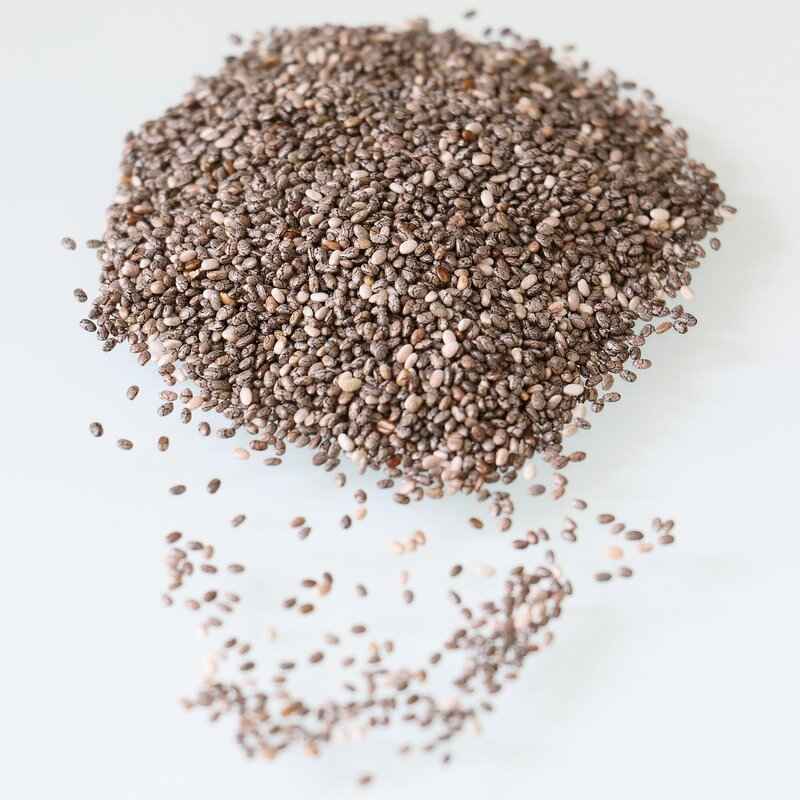
What Are Flax Seeds?
Flax seeds, derived from the flax plant (Linum usitatissimum), are small, brown, or golden seeds that pack a powerful nutritional punch. These seeds have been cultivated for thousands of years, not only for their fibers used in textiles but also for their remarkable health benefits. Rich in omega-3 fatty acids, particularly alpha-linolenic acid (ALA), flax seeds are recognized for their potential to support heart health and reduce inflammation.
In addition to omega-3s, flax seeds are an excellent source of lignans, a type of antioxidant that has been shown to have estrogen-like properties, which may contribute to hormonal balance and reduce the risk of certain cancers. Furthermore, flax seeds are high in dietary fiber, which aids in digestion and promotes a feeling of fullness, making them a beneficial addition to any diet.
Here’s a closer look at the nutritional profile of flax seeds:
| Nutrient | Per 100g |
|---|---|
| Calories | 534 |
| Protein | 18g |
| Fat | 42g |
| Carbohydrates | 29g |
| Fiber | 27g |
| Omega-3 Fatty Acids | 22g |
Incorporating flax seeds into your diet is simple. They can be consumed whole or ground, with ground flax seeds being more easily digestible, allowing for better nutrient absorption. You can sprinkle them on yogurt, mix them into smoothies, or add them to baked goods like muffins and bread. Additionally, flax seeds can be used as an egg substitute in vegan recipes, where one tablespoon of ground flax seeds mixed with three tablespoons of water can replace one egg.
Research suggests that regular consumption of flax seeds can lead to various health benefits, including:
- Heart Health: The omega-3 fatty acids in flax seeds help lower blood pressure and cholesterol levels.
- Digestive Health: High fiber content aids in regular bowel movements and promotes gut health.
- Weight Management: The fiber in flax seeds can help control appetite, making it easier to manage weight.
- Hormonal Balance: Lignans may support hormonal health, particularly in women.
While flax seeds are generally safe for most people, it’s important to consume them in moderation. Excessive intake may lead to digestive issues due to their high fiber content. A daily serving of 1-2 tablespoons is typically recommended for optimal health benefits.
In summary, flax seeds are a versatile superfood that can enhance your diet with their rich nutrient profile and numerous health benefits. Whether you’re looking to improve heart health, aid digestion, or simply add more nutrients to your meals, flax seeds are an excellent choice.

Chia Seeds Nutritional Profile: What’s Inside?
Chia seeds are increasingly recognized as a superfood, thanks to their impressive nutritional profile. These tiny seeds, derived from the Salvia hispanica plant, are not only versatile but also incredibly beneficial for overall health. Let’s delve deeper into what makes chia seeds a valuable addition to your diet.
Chia seeds are a powerhouse of essential nutrients. Here’s a breakdown of their key components:
- Protein: Chia seeds contain about 4 grams of protein per ounce, which is significant for a plant-based source. This makes them an excellent option for vegetarians and vegans.
- Fiber: With approximately 11 grams of fiber per ounce, chia seeds are an excellent way to support digestive health. The high fiber content can help promote feelings of fullness, aiding in weight management.
- Omega-3 Fatty Acids: Chia seeds are rich in alpha-linolenic acid (ALA), a type of omega-3 fatty acid that is crucial for heart health and reducing inflammation.
- Calcium: They provide about 18% of the recommended daily intake of calcium, which is vital for bone health.
- Antioxidants: Chia seeds are loaded with antioxidants, which help combat oxidative stress and may lower the risk of chronic diseases.
The unique composition of chia seeds contributes to various health benefits:
- Heart Health: The omega-3 fatty acids present in chia seeds can help lower cholesterol levels and reduce the risk of heart disease.
- Weight Management: The high fiber content aids in digestion and promotes satiety, making it easier to manage weight.
- Bone Strength: With significant levels of calcium, chia seeds can support bone density and strength.
- Blood Sugar Control: Chia seeds may help regulate blood sugar levels, which is particularly beneficial for individuals with diabetes.
Incorporating chia seeds into your meals is simple and versatile. Here are some creative ideas:
- Add them to smoothies for a nutrient boost.
- Mix them into oatmeal or yogurt for added texture and nutrition.
- Use them in baking, such as in muffins or bread.
- Create chia pudding by soaking them in almond milk or coconut milk overnight.
In conclusion, chia seeds are a remarkable source of essential nutrients that can enhance your overall health. Their unique combination of protein, fiber, omega-3 fatty acids, calcium, and antioxidants makes them a superfood worth including in your daily diet. Whether you’re looking to improve heart health, manage weight, or simply add more nutrients to your meals, chia seeds offer a plethora of benefits that can help you achieve your health goals.

Flax Seeds Nutritional Profile: What’s Inside?
Flax seeds, derived from the flax plant (Linum usitatissimum), are celebrated for their impressive nutritional profile and numerous health benefits. These small seeds are a powerhouse of essential nutrients, making them a valuable addition to any diet.
Flax seeds are particularly known for their high content of omega-3 fatty acids, specifically alpha-linolenic acid (ALA). Omega-3 fatty acids are crucial for heart health, as they help reduce inflammation and lower cholesterol levels. A single tablespoon of flax seeds provides approximately 2.4 grams of ALA, contributing significantly to the recommended daily intake.
In addition to omega-3s, flax seeds are an excellent source of dietary fiber. With about 3 grams of fiber per tablespoon, they promote healthy digestion and can aid in maintaining a healthy weight. The fiber in flax seeds helps to regulate bowel movements, preventing constipation and promoting overall gut health.
Flax seeds are also rich in lignans, which are phytoestrogens that have antioxidant properties. These compounds have been linked to various health benefits, including a reduced risk of certain cancers, particularly breast and prostate cancer. The high lignan content in flax seeds is about 75-800 times higher than that found in other plant foods.
Flax seeds are not just about omega-3s, fiber, and lignans; they also contain a variety of essential vitamins and minerals. Some of the key nutrients include:
- Magnesium: Supports muscle and nerve function, as well as energy production.
- Phosphorus: Important for bone health and energy storage.
- Vitamin B1 (Thiamine): Essential for converting carbohydrates into energy.
- Vitamin B6: Plays a vital role in protein metabolism and cognitive development.
To maximize the health benefits of flax seeds, it is recommended to consume them in ground form. Whole flax seeds can pass through the digestive system undigested, which means the body may not absorb all their nutrients. Here are some easy ways to include flax seeds in your meals:
- Add ground flax seeds to smoothies for a nutritious boost.
- Mix them into oatmeal or yogurt for added texture and fiber.
- Incorporate flax seed meal into baked goods like muffins and bread.
Regular consumption of flax seeds may lead to numerous health benefits, including:
- Lower cholesterol levels and improved heart health.
- Reduced inflammation, which can help with conditions like arthritis.
- Enhanced digestive health due to their high fiber content.
In summary, flax seeds are a nutrient-dense superfood that can play a significant role in promoting overall health. Their unique combination of omega-3 fatty acids, fiber, and lignans makes them an excellent choice for anyone looking to enhance their diet and improve their well-being.
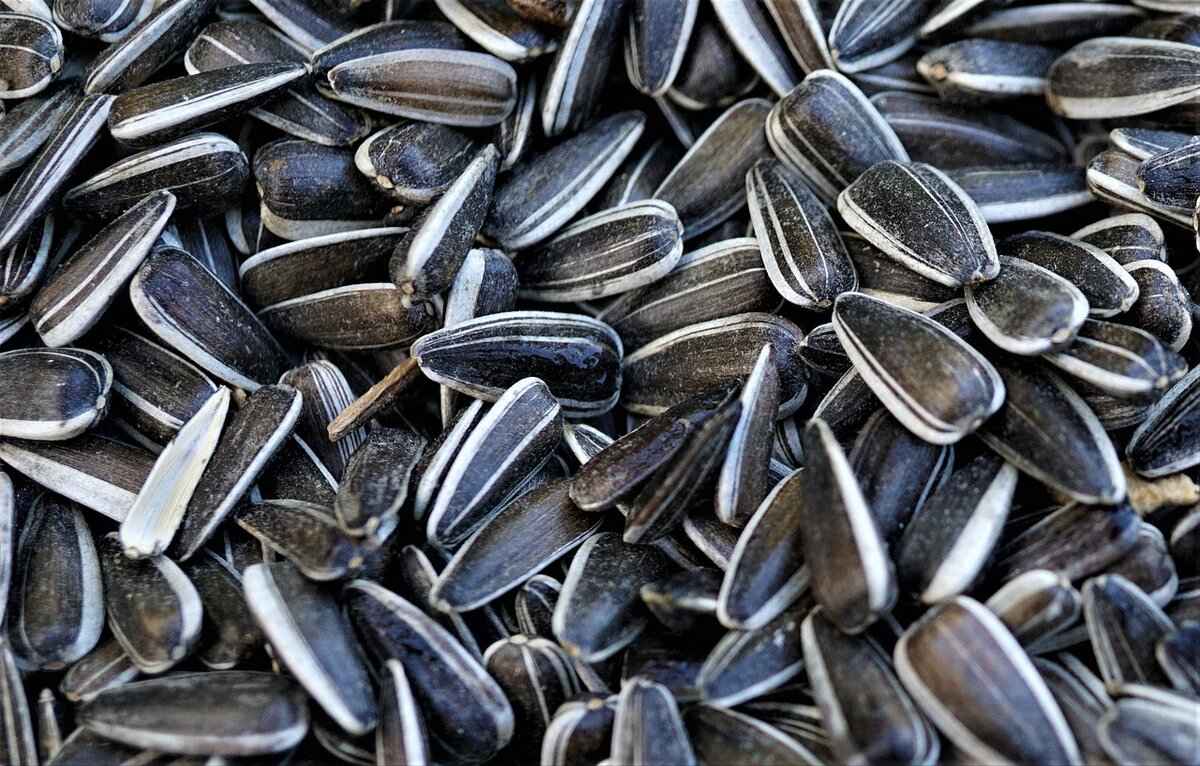
Health Benefits of Chia Seeds: What Should You Know?
Chia seeds, derived from the Salvia hispanica plant, have gained immense popularity in the health community due to their impressive nutritional profile. These tiny seeds are not only rich in essential nutrients but also offer a variety of health benefits that can positively impact your overall well-being. Understanding these benefits is crucial for anyone looking to enhance their diet.
- Improved Digestion: Chia seeds are an excellent source of dietary fiber, which aids in digestion. By absorbing water, they expand in your stomach, helping you feel fuller longer and promoting regular bowel movements.
- Heart Health: These seeds are rich in omega-3 fatty acids, which are known to support heart health. They can help lower cholesterol levels, reduce inflammation, and decrease the risk of heart disease.
- Blood Sugar Regulation: Chia seeds can help stabilize blood sugar levels due to their high fiber content. This can be particularly beneficial for individuals with diabetes or those looking to manage their weight.
- Bone Health: Packed with calcium, magnesium, and phosphorus, chia seeds contribute to bone density and overall bone health. Including them in your diet can be a simple way to support your skeletal system.
- Antioxidant Properties: Chia seeds are loaded with antioxidants, which help fight free radicals in the body. This can reduce oxidative stress and lower the risk of chronic diseases.
Incorporating chia seeds into your diet is simple and versatile. Here are some practical ways to enjoy them:
- Chia Pudding: Combine chia seeds with your choice of milk or a milk alternative, add sweeteners or fruits, and let it sit overnight to create a delicious pudding.
- Smoothies: Blend chia seeds into your favorite smoothie for an added nutritional boost.
- Baked Goods: Add chia seeds to muffins, breads, or pancakes to enhance their fiber and nutrient content.
- Salads and Yogurt: Sprinkle chia seeds over salads or mix them into yogurt for extra crunch and nutrition.
While chia seeds are generally safe for most people, consuming them in excessive amounts can lead to digestive issues such as bloating or gas. It is advisable to start with a small serving and gradually increase your intake. Additionally, always ensure you are drinking enough water, as chia seeds absorb liquid and can expand in your stomach.
In summary, chia seeds are a powerful superfood that offers numerous health benefits, including improved digestion, heart health, and blood sugar regulation. By understanding these advantages and incorporating chia seeds into your daily diet, you can enhance your nutritional intake and support your overall health.
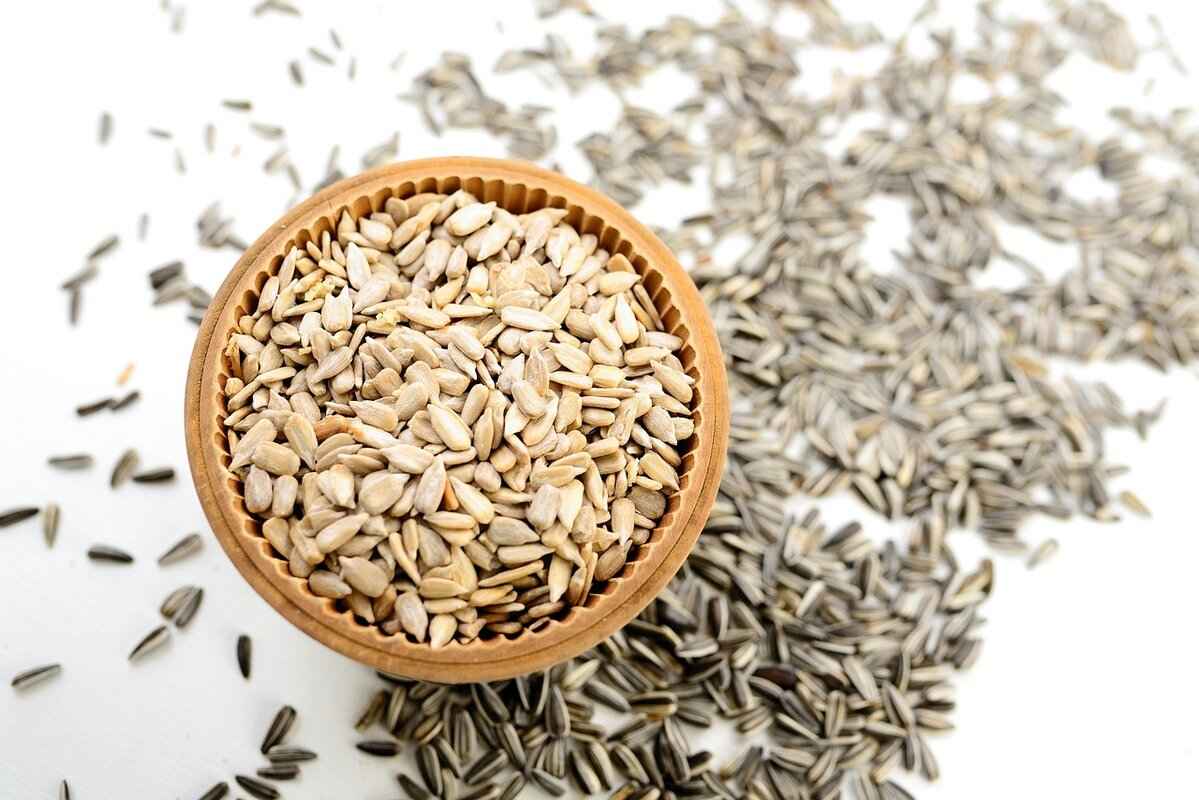
Health Benefits of Flax Seeds: What Should You Know?
Flax seeds, derived from the flax plant (Linum usitatissimum), have gained recognition as a superfood due to their impressive health benefits. These tiny seeds are a powerhouse of nutrients and can play a vital role in enhancing overall well-being. Below, we delve into the numerous health benefits of flax seeds and why you should consider incorporating them into your diet.
One of the most significant benefits of flax seeds is their potential to lower cholesterol levels. Flax seeds contain high amounts of soluble fiber, which can help reduce the absorption of cholesterol in the bloodstream. This can be particularly beneficial for individuals looking to manage their heart health. Regular consumption of flax seeds has been linked to improved lipid profiles, making them a valuable addition to a heart-healthy diet.
Flax seeds are rich in omega-3 fatty acids, specifically alpha-linolenic acid (ALA), which is known for its anti-inflammatory properties. Chronic inflammation is linked to various health issues, including heart disease and arthritis. Incorporating flax seeds into your diet may help reduce inflammation markers in the body, promoting better overall health and potentially alleviating symptoms of inflammatory conditions.
Flax seeds are an excellent source of both soluble and insoluble fiber, which are essential for maintaining a healthy digestive system. The fiber in flax seeds can help regulate bowel movements, prevent constipation, and promote a healthy gut microbiome. A diet rich in fiber is also associated with a lower risk of developing digestive disorders, making flax seeds a smart choice for digestive health.
The high fiber content in flax seeds can aid in weight management. Fiber helps to increase feelings of fullness, which can reduce overall calorie intake. Additionally, the healthy fats in flax seeds provide a satisfying energy source, making it easier to manage hunger throughout the day. Including flax seeds in meals can help you feel satisfied longer, supporting your weight loss or maintenance goals.
Flax seeds are also known for their content of lignans, which are phytoestrogens that may help balance hormones. These compounds can mimic estrogen in the body, which may be beneficial for women experiencing hormonal fluctuations, such as during menopause. Incorporating flax seeds into the diet may help alleviate some symptoms associated with hormonal imbalances.
Flax seeds can be easily added to your meals in various ways. Here are some simple ideas:
- Add ground flax seeds to smoothies for a nutrient boost.
- Sprinkle whole or ground flax seeds on oatmeal or yogurt.
- Use flaxseed meal as a substitute for flour in baking.
- Incorporate flax seeds into homemade energy bars or granola.
When incorporating flax seeds into your diet, it’s essential to consume them in moderation and drink plenty of water to aid digestion. Ground flax seeds are often recommended over whole seeds, as they are easier for the body to digest and absorb nutrients.
In conclusion, flax seeds offer a multitude of health benefits ranging from lowering cholesterol and reducing inflammation to supporting digestive health and hormonal balance. By understanding these advantages, you can make informed dietary choices that contribute to your overall health and wellness.

How to Use Chia Seeds in Your Diet?
Chia seeds are not only a nutrient powerhouse but also incredibly versatile, making them an excellent addition to various meals. Whether you’re looking to boost your breakfast, enhance your snacks, or enrich your baked goods, chia seeds can easily fit into your diet in numerous ways.
Starting your day with chia seeds can significantly enhance the nutritional profile of your breakfast. Here are some popular methods:
- Chia Seed Pudding: Combine chia seeds with almond milk or coconut milk, add a sweetener like honey or maple syrup, and let it sit overnight. In the morning, top with fruits, nuts, or granola for a delicious meal.
- Oatmeal Booster: Stir a tablespoon of chia seeds into your oatmeal while cooking. This not only adds texture but also increases the fiber and protein content.
- Smoothies: Add a tablespoon of chia seeds to your smoothie for a thick, creamy texture and a significant boost in omega-3 fatty acids. They blend well with various fruits and vegetables.
Chia seeds are perfect for snacking and can be incorporated into various meals throughout the day:
- Energy Bars: Incorporate chia seeds into homemade energy bars or protein balls. They add crunch and nutritional value, making your snacks more satisfying.
- Salads: Sprinkle chia seeds over salads for added crunch and nutrients. They can absorb liquid, which can enhance the overall texture of your dish.
- Soups and Stews: Adding chia seeds to soups or stews can thicken the consistency while enriching the meal with additional fiber and nutrients.
Chia seeds can also be a great addition to your baking repertoire:
- Bread and Muffins: Substitute a portion of flour with ground chia seeds in your bread or muffin recipes. This not only boosts the nutritional value but also adds moisture.
- Pancakes and Waffles: Mix chia seeds into your pancake or waffle batter for a healthy twist. They can enhance the texture and provide a satisfying crunch.
- Cookie Recipes: Incorporate chia seeds into cookie recipes for added fiber and omega-3s. They can replace eggs when mixed with water, acting as a binding agent.
Chia seeds can also be included in various beverages for added health benefits:
- Chia Fresca: Mix chia seeds with water, lemon juice, and a sweetener to create a refreshing drink. This beverage is hydrating and packed with nutrients.
- Infused Water: Add chia seeds to your infused water recipes. They can absorb flavors from fruits and herbs, making your hydration more exciting.
In conclusion, the possibilities for incorporating chia seeds into your diet are virtually endless. From breakfast to snacks and even beverages, these tiny seeds offer a convenient way to enhance the nutritional value of your meals. By experimenting with different recipes and combinations, you can enjoy the numerous health benefits that chia seeds provide while adding variety to your diet.

How to Use Flax Seeds in Your Diet?
Flax seeds are a nutritional powerhouse, and incorporating them into your diet can be both easy and enjoyable. Understanding the various ways to use flax seeds can help you unlock their full potential and maximize their health benefits.
Flax seeds can be consumed in several forms, each offering unique benefits. Here are some effective methods to include them in your meals:
- Whole Flax Seeds: While whole flax seeds can add a pleasant crunch to your dishes, they are less digestible than ground seeds. To gain the most nutrients, consider grinding them before consumption. Whole seeds can be sprinkled on salads or added to trail mixes for an extra boost of fiber and healthy fats.
- Ground Flax Seeds: Grinding flax seeds makes their nutrients more accessible. You can easily add ground flax seeds to smoothies, oatmeal, or yogurt. A tablespoon of ground flax seeds in your morning smoothie can enhance its nutritional profile with omega-3 fatty acids and fiber.
- Baking with Flax Seeds: Flax seeds can be a fantastic addition to baked goods. You can substitute a portion of flour with ground flax seeds in recipes for muffins, pancakes, or bread. This not only increases the fiber content but also adds a nutty flavor.
- Flaxseed Oil: Another way to enjoy the benefits of flax seeds is through flaxseed oil. This oil is rich in omega-3 fatty acids and can be used in salad dressings or drizzled over cooked vegetables. However, avoid using it for cooking at high temperatures to preserve its nutritional value.
- Flaxseed Meal: You can create flaxseed meal by grinding whole flax seeds into a fine powder. This meal can be used as a gluten-free flour alternative in various recipes or as a thickening agent in soups and sauces.
When incorporating flax seeds into your diet, it’s essential to consider the recommended serving size. A daily intake of 1 to 2 tablespoons of ground flax seeds is generally considered beneficial. However, it’s important to increase your intake gradually to avoid digestive discomfort.
Hydration is Key: Flax seeds are high in soluble fiber, which can absorb water and expand in your digestive system. Therefore, ensure you drink plenty of water when consuming flax seeds to aid digestion and prevent any gastrointestinal issues.
In conclusion, flax seeds are incredibly versatile and can be easily integrated into various meals. Whether you choose to consume them whole, ground, or as oil, their health benefits are undeniable. By experimenting with different methods of preparation, you can find enjoyable ways to include flax seeds in your daily diet, enhancing both flavor and nutrition.
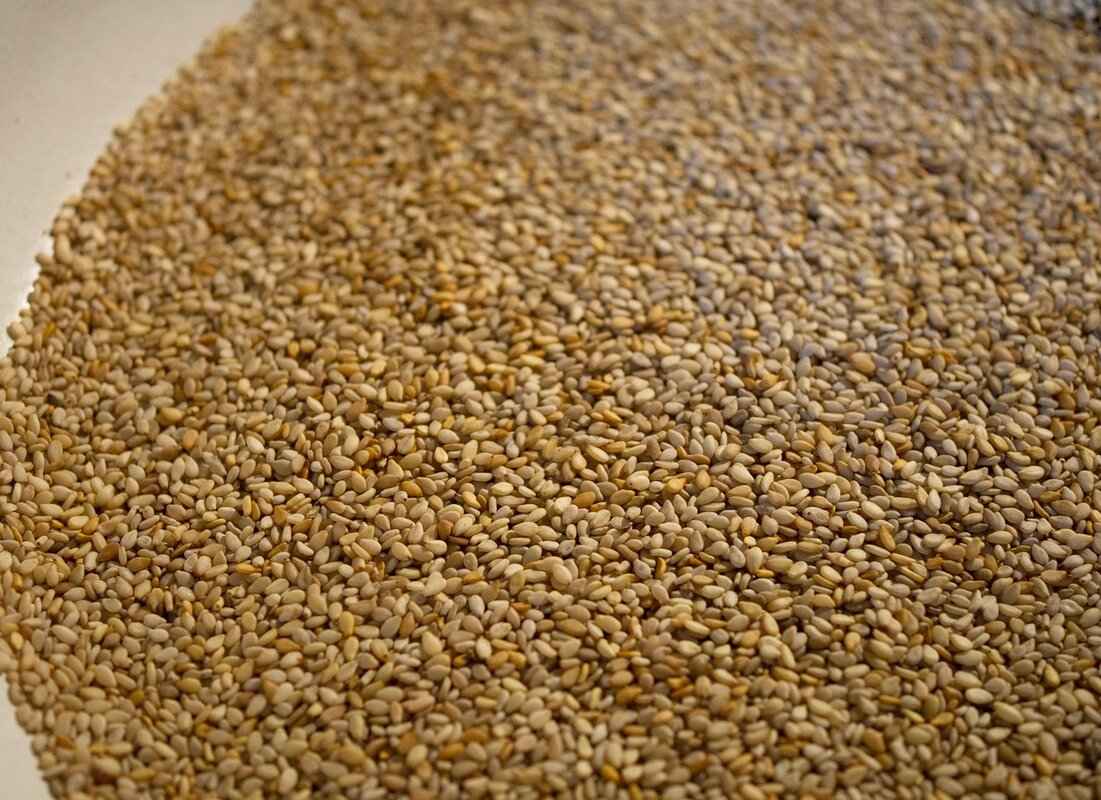
Chia Seeds vs Flax Seeds: Which Is Better for Weight Loss?
When it comes to weight loss, the right nutritional choices can make a significant difference. Among the many superfoods available, chia seeds and flax seeds have gained attention for their potential benefits in supporting weight management. This article delves into the characteristics of both seeds, focusing on their fiber content, effects on satiety, and metabolism, to help you decide which might be more suitable for your weight loss goals.
Chia seeds are renowned for their impressive fiber content, which contributes to a feeling of fullness or satiety. When chia seeds are mixed with liquid, they expand and form a gel-like consistency, which can help curb hunger and reduce overall calorie intake. Additionally, the high fiber content aids in digestion and can promote a healthy gut, further supporting weight loss efforts.
Flax seeds also boast a high fiber content, particularly in the form of soluble fiber, which can help slow digestion and prolong feelings of fullness. This can lead to reduced snacking and lower calorie consumption throughout the day. Moreover, flax seeds are rich in omega-3 fatty acids, which have been linked to improved metabolic health and may assist in fat loss.
- Chia Seeds: Their ability to absorb water and swell can lead to increased satiety, making them an excellent choice for those looking to control their appetite.
- Flax Seeds: While they may not expand to the same extent, their soluble fiber content helps maintain a feeling of fullness, which is beneficial for weight management.
Both chia and flax seeds can positively influence metabolism, but they do so in different ways. Chia seeds are rich in antioxidants, which can help combat oxidative stress and promote overall metabolic health. On the other hand, flax seeds contain lignans, compounds that may have a beneficial effect on hormone balance and metabolism.
Incorporating these seeds into your diet can be simple and delicious. Here are a few suggestions:
- Add chia seeds to smoothies or yogurt for a nutritious boost.
- Sprinkle ground flax seeds on oatmeal or salads for added texture and flavor.
- Use chia seeds to make a healthy pudding by soaking them in almond milk or coconut milk overnight.
- Incorporate flax seeds into baked goods like muffins or bread for a nutritious twist.
Ultimately, both chia and flax seeds offer unique benefits that can support weight loss. If you prefer a seed that expands and helps you feel fuller, chia seeds may be the better option. However, if you are looking for added omega-3 fatty acids and lignans, flax seeds could be your go-to choice. Including both seeds in your diet can provide a range of nutrients and health benefits, making them valuable additions to a weight loss plan.
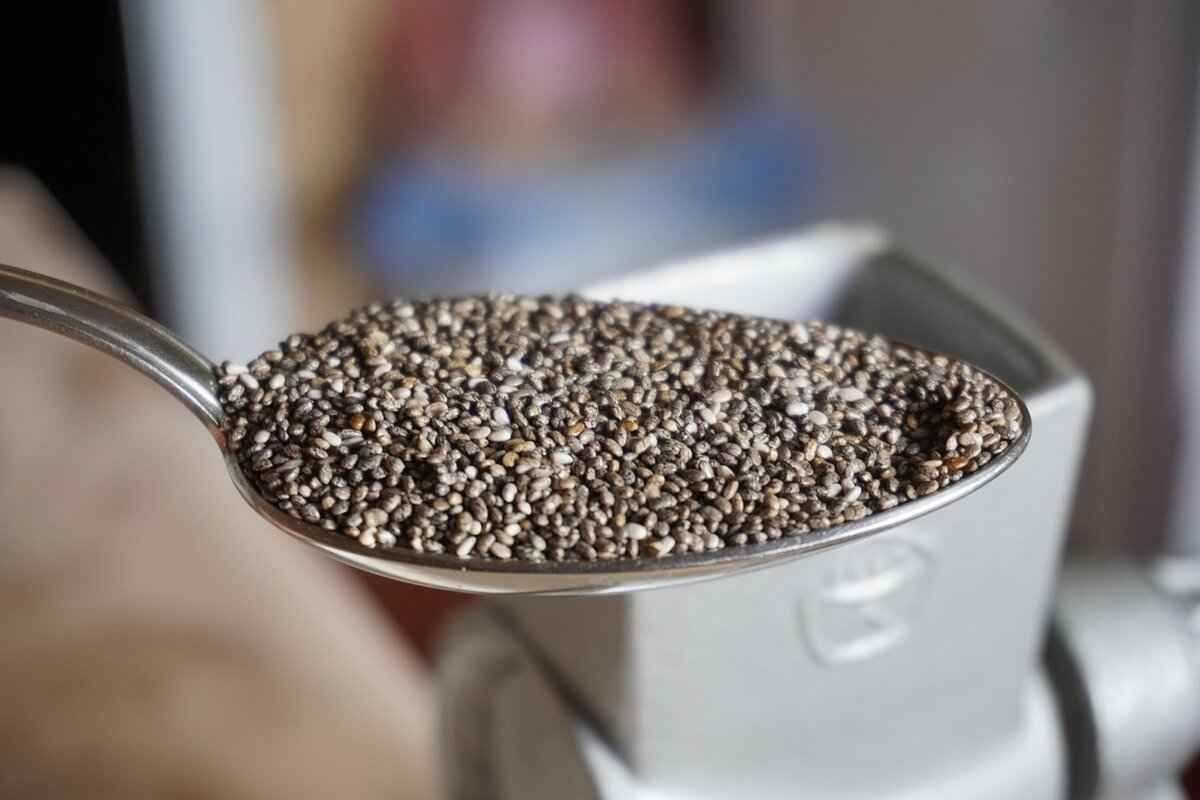
Are There Any Risks or Side Effects?
When considering the incorporation of chia seeds and flax seeds into your diet, it’s essential to be aware of potential risks and side effects. Although both seeds are generally recognized as safe and offer numerous health benefits, consuming them in excessive amounts can lead to certain digestive issues.
Chia seeds are renowned for their high fiber content, which can be beneficial for digestion. However, if consumed in large quantities without sufficient hydration, they may cause gastrointestinal discomfort. This includes symptoms such as bloating, gas, and abdominal pain. It is crucial to consume chia seeds with adequate water, as they expand significantly when soaked, absorbing up to 12 times their weight in liquid.
Flax seeds, like chia seeds, are also high in fiber and omega-3 fatty acids. However, they contain cyanogenic compounds that can release cyanide when metabolized. While the amount in whole flax seeds is typically low and not harmful in moderation, it’s advisable to limit the intake to about 1-2 tablespoons per day. Ground flax seeds are often recommended over whole seeds, as they are easier to digest and provide better nutrient absorption.
Yes, overconsumption of either chia or flax seeds can lead to digestive problems. Individuals who are not accustomed to a high-fiber diet may experience more pronounced effects. It is recommended to gradually introduce these seeds into your diet, allowing your digestive system to adjust. Starting with small amounts, such as 1 teaspoon, and slowly increasing the serving size can help mitigate any adverse effects.
- Chia Seeds: A typical serving size is 1-2 tablespoons (15-30 grams) per day.
- Flax Seeds: It is advisable to consume 1-2 tablespoons of ground flax seeds daily.
Individuals with certain health conditions, such as irritable bowel syndrome (IBS) or those who are prone to gastrointestinal issues, should consult a healthcare professional before adding chia or flax seeds to their diet. Additionally, pregnant women should also seek advice, as excessive fiber intake can lead to digestive complications.
To enjoy the benefits of chia and flax seeds while minimizing risks, consider the following tips:
- Always hydrate chia seeds before consumption.
- Opt for ground flax seeds for better nutrient absorption.
- Incorporate seeds into smoothies, yogurt, or baked goods for balanced meals.
- Monitor your body’s response and adjust serving sizes accordingly.
In summary, while chia and flax seeds offer many health benefits, it is vital to consume them in moderation and be aware of potential side effects. By following recommended serving sizes and listening to your body’s needs, you can safely include these superfoods in your diet.
Frequently Asked Questions
- What is the main difference between chia seeds and flax seeds?
Chia seeds are known for their high fiber content and ability to absorb liquid, forming a gel-like consistency, while flax seeds are rich in lignans and are often ground to enhance nutrient absorption. Both offer unique health benefits, but their nutritional profiles differ slightly.
- Can I use chia seeds and flax seeds interchangeably in recipes?
While both seeds can add nutritional value to your meals, they have different textures and flavors. Chia seeds are great for thickening smoothies or making puddings, while flax seeds are often used in baking. You can substitute them, but it’s best to consider the recipe’s requirements.
- How much chia or flax seeds should I consume daily?
A typical serving size is about 1-2 tablespoons per day. However, it’s essential to listen to your body and adjust according to your digestive comfort, as both seeds are high in fiber.
- Are there any health risks associated with eating chia or flax seeds?
Both seeds are generally safe for most people. However, consuming them in excessive amounts can lead to digestive discomfort. It’s advisable to start with small portions and increase gradually.
- Which seed is better for weight loss?
Both chia and flax seeds can support weight loss due to their fiber content, which promotes feelings of fullness. The choice may depend on personal preference and how they fit into your diet.














